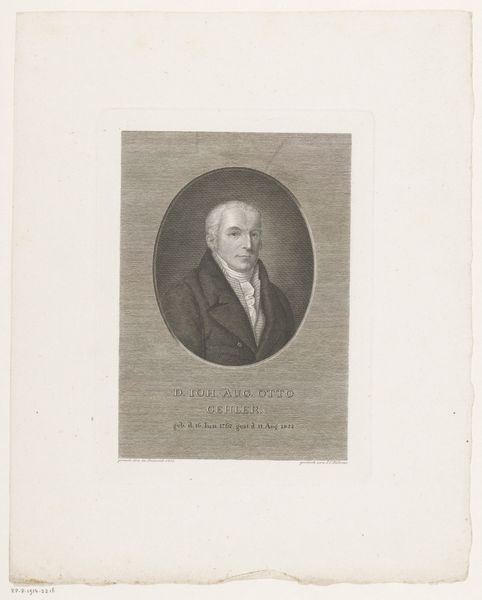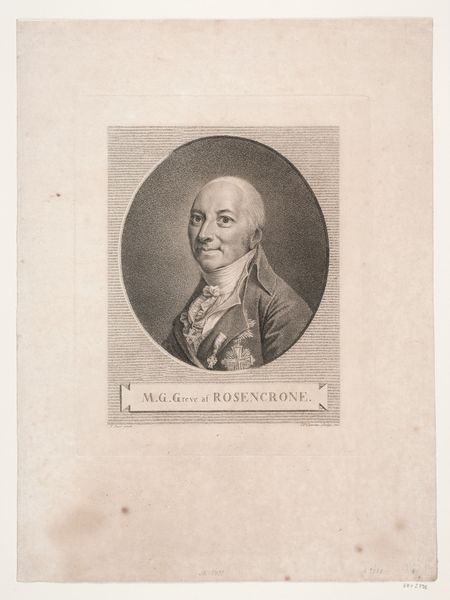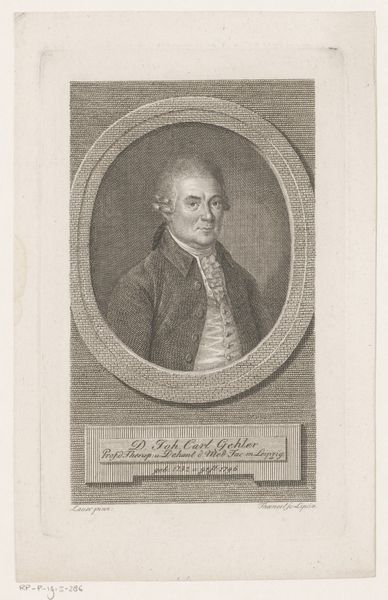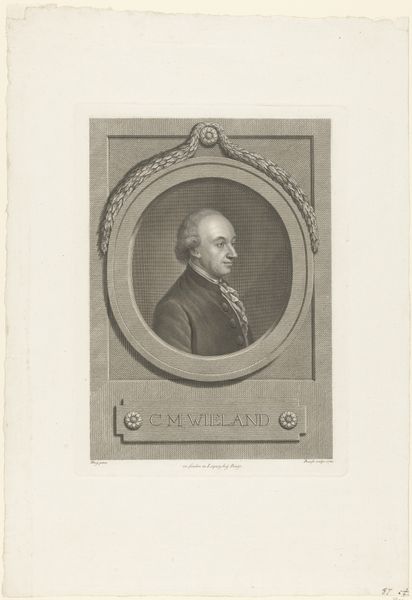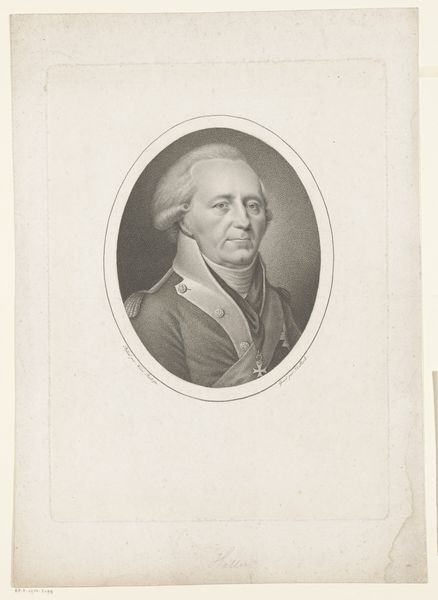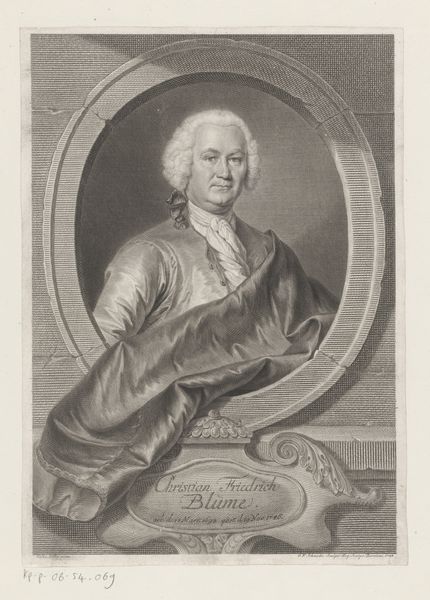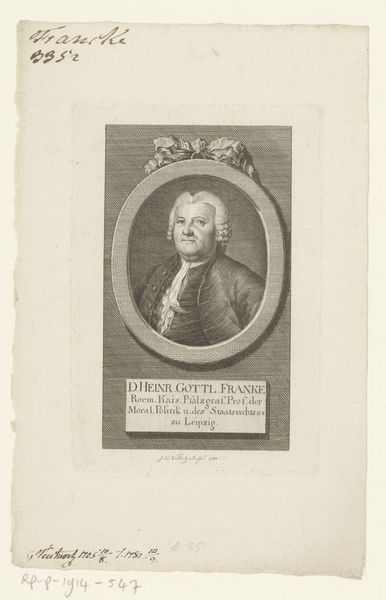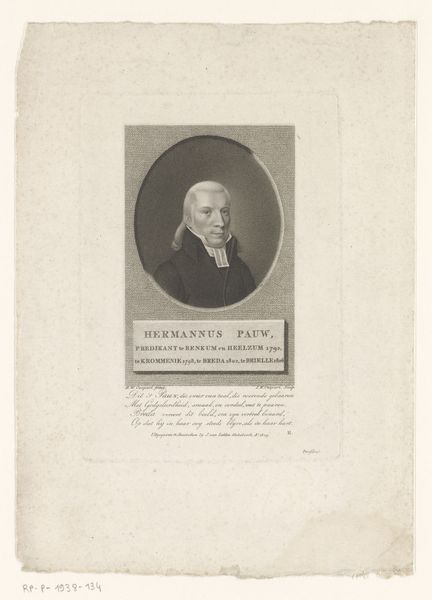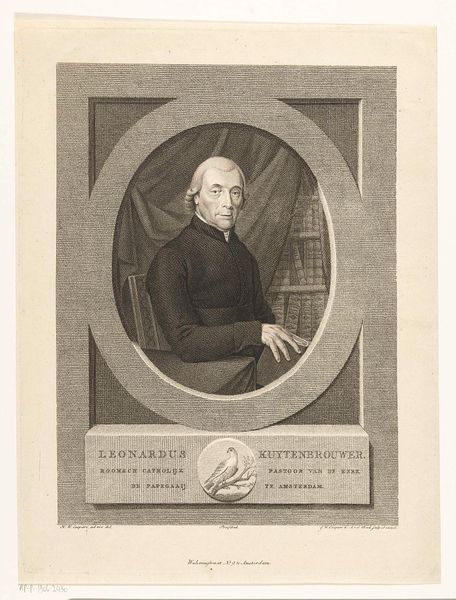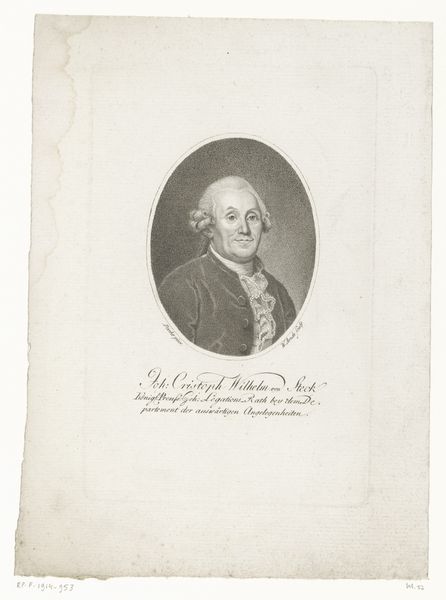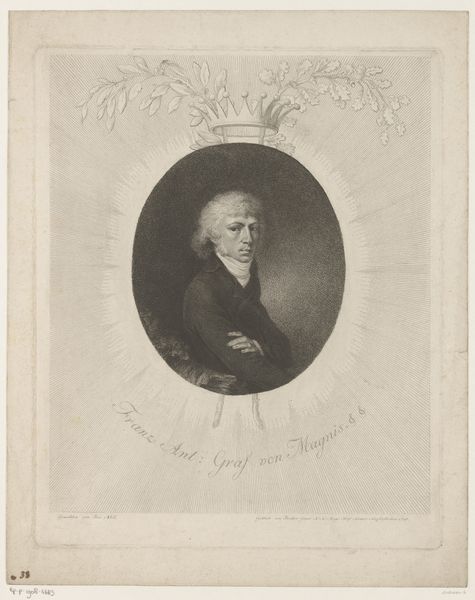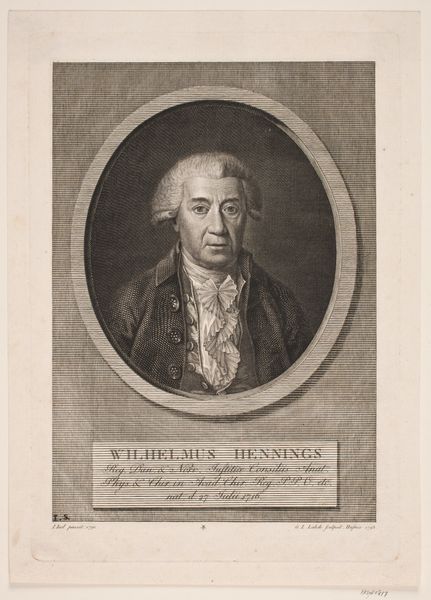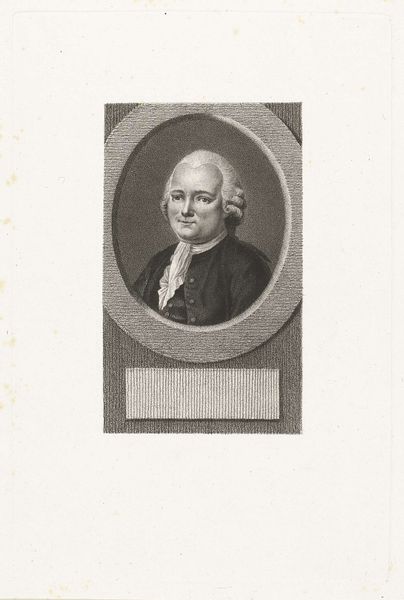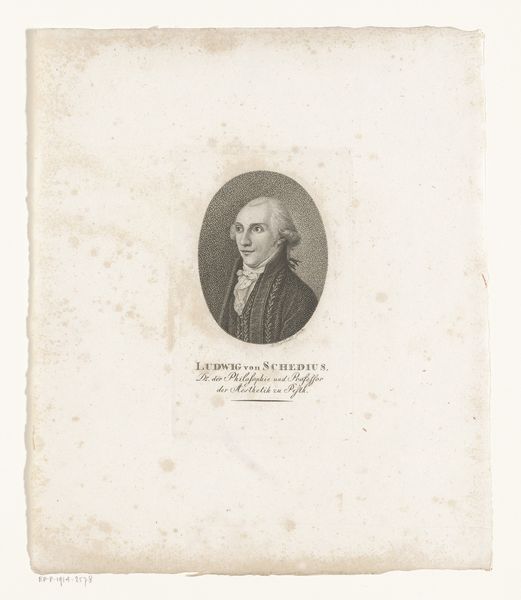
print, engraving
#
portrait
#
pencil drawn
#
toned paper
#
neoclassicism
# print
#
pencil sketch
#
pencil drawing
#
19th century
#
engraving
Dimensions: height 297 mm, width 233 mm
Copyright: Rijks Museum: Open Domain
Curator: Up next, we have a captivating engraving from the early 19th century, "Portret van Friedrich Gottlieb Klopstock", made sometime between 1803 and 1887 by Friedrich Wilhelm Linger. The work offers a sensitive portrayal rendered in a printmaking style reminiscent of the neoclassicist era. Editor: The first thing that strikes me is the quiet dignity. The oval framing focuses all the attention on Klopstock himself. There's such stillness. What symbols of power are present and what does the toned ground do for the figure? Curator: It’s all very intentional. Ovals have been used in portraiture for centuries—it concentrates the gaze. Think cameos. The toned ground lends a soft focus, blurring edges to romanticize him somewhat, smoothing the years a little bit. You could read that as a symbol itself – an erasure of time for an author whose words were considered timeless? Editor: Indeed. And what of Klopstock himself? We are given little clues as to his standing beyond his somber garb and the set to his brow. One could perceive an aspect of civic virtue through that stoic gaze as we find no lavish adornments or trappings of rank here. Perhaps Linger uses stark economy as a signal toward enlightenment principles where men such as Klopstock aimed to promote through their work. Curator: A fascinating perspective. Looking at the face, you can read character—resolve maybe—but his direct gaze doesn't offer much emotional leeway to the viewer, does it? It has the feel of a carefully cultivated image of serious accomplishment. One intended, maybe, for posterity. A brand, of sorts. Editor: And perhaps the greatest symbol of his power—his name. “Friedrich Gottlieb Klopstock” emblazoned at the bottom; it leaves us little doubt of this man's importance, ensuring no one will forget him and the memory he and his work represents. Curator: Absolutely. And what a powerful pairing to juxtapose against that somber figure presented to us in elegant shades of gray, like memory taking shape on the page. Thanks for this reflection. Editor: My pleasure, this has really sharpened my vision too. Thank you.
Comments
No comments
Be the first to comment and join the conversation on the ultimate creative platform.
